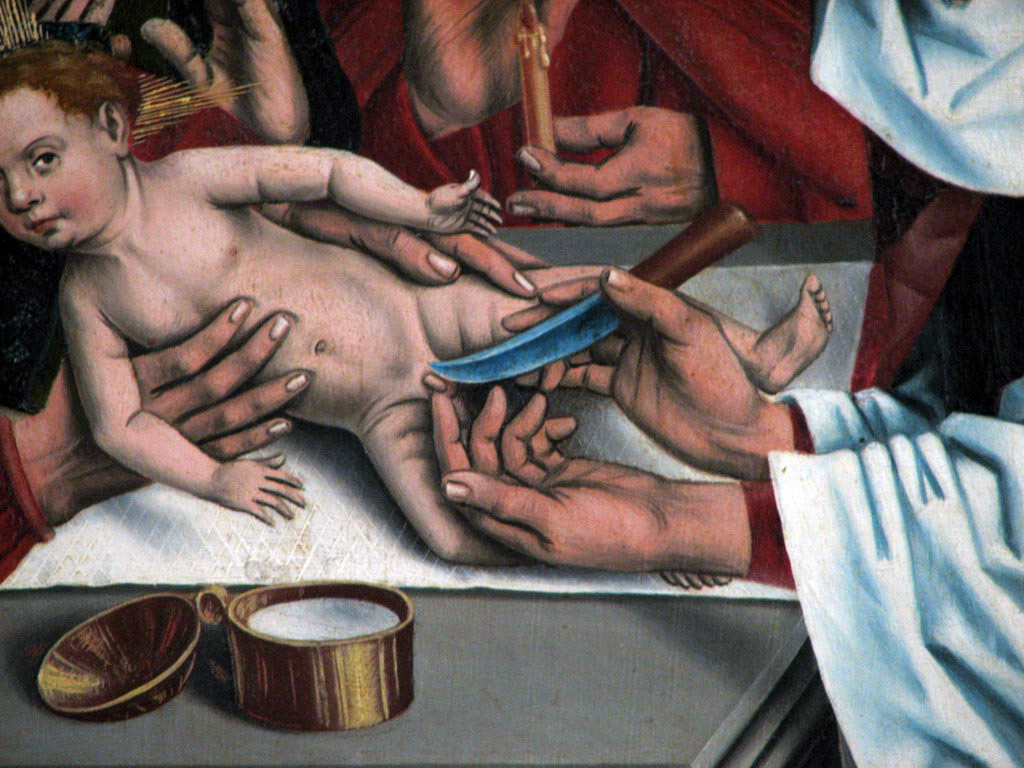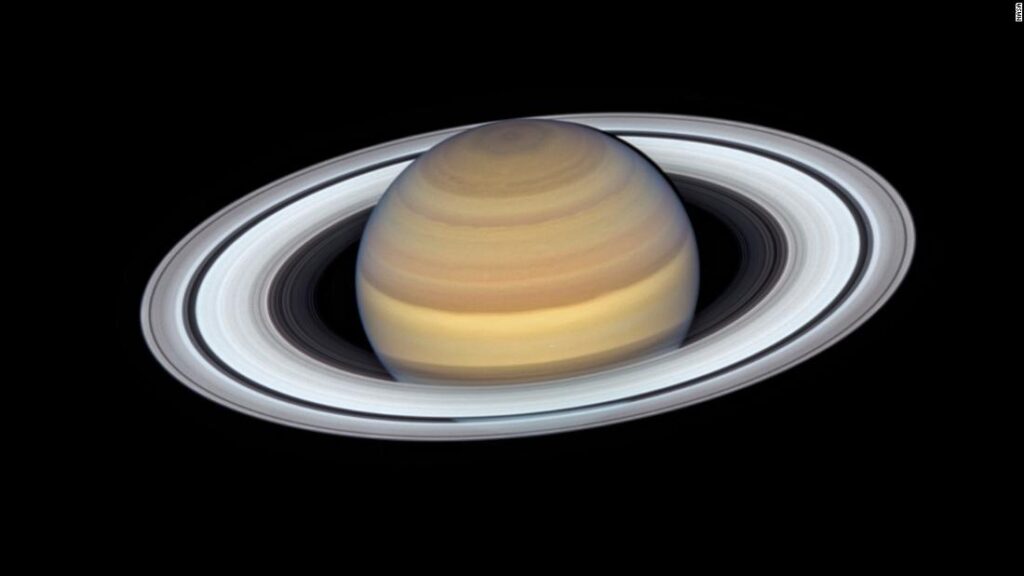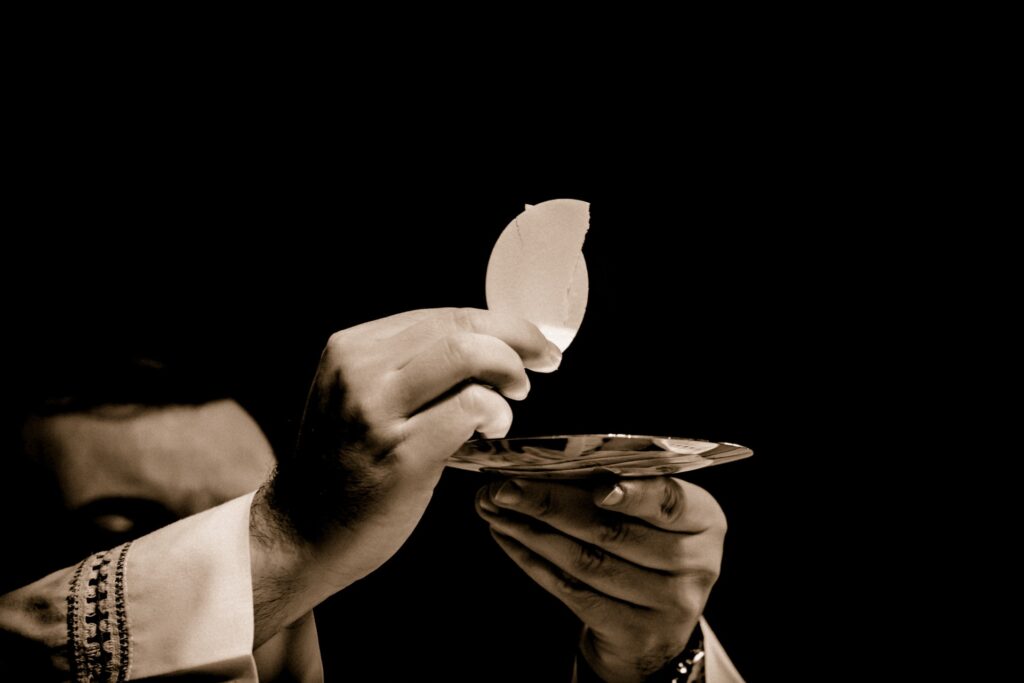+ ‘After eight days had passed, it was time to circumcise the child; and he was called Jesus, the name given by the angel before he was conceived in the womb’.
In the 1930s Oswald Mosley’s fascist blackshirts were a strong presence in Bristol. A young vicar, Mervyn Stockwood, annoyed them and a group of blackshirts visited his church to chant insults to Stockwood during a service. When they had finished they clicked their heels and gave a fascist salute to the crucifix before leaving. Stockwood shouted after them, ‘gentlemen, do you know you have just saluted a Jew?’
Today’s feast, the circumcision and naming of Jesus, may seem an odd thing to be thinking about on New Year’s Day but it is a very Biblical thing to contemplate, 8 days after Christmas. Big feasts like Christmas and Easter have an octave, which means they are extended for 8 days. Luke’s gospel tells us Jesus was circumcised and given his name on the 8th day. This helps us think a bit more about what Christmas means.

Firstly, Jesus was a Jew. Circumcision is a bit like baptism, it marks belonging to the community. Christianity has a bad legacy of anti-Semitism but there is no reason for that as our religion developed out of Judaism. Jesus was born into the religious tradition of Israel. As our society loses its roots, there is a lot of interest in tradition. The rather strange custom in some families with young children of ‘elf on the shelf’ was invented in America in 2005 and is marketed as a ‘Christmas tradition’. I’d say the Church has better traditions but to be human is to live within tradition (the things we inherit from our parents and others) and so Jesus the Jew was fully human.
Today’s feast also recalls his naming, just as we are given a name in baptism. Jesus’ name, however, was given by an angel who told his mother he was the Son of God and Jesus means, broadly ‘God saves’. Today’s feast also tells us by his name and how he got it that Jesus the Jew is also God. We’re back to what Christmas is all about: God becoming human in Jesus.

But there is more than that. Did you see that last week there was a day when all the planets were visible in the night sky (if you could see through the Scottish cloud). In the seventeenth century the Vatican librarian Leo Allatius is said to have taught that the rings of Saturn were the foreskin of Jesus transferred to space at the resurrection. Now, I don’t think this is true but I suspect some of you may think that to mention this in church is indelicate. Some things are not suitable for church. We saw this at midnight Mass when our sound system locked on the system in the pub over the road and the language was so fruity we had to turn it off.
But I’d say that spending New Year’s day thinking about Jesus and his humanity is a good thing to do, a good start to the year, and if we are serious about his humanity it involves all aspects of being human. Our God is not a God who steers clear of the messiness of the human condition. Our God leaps down from heaven to be born, with all that a birth entails. He mixes with the sort of people nice people don’t invite to their parties. He weeps with grief over his friend Lazarus and he goes through the agony of crucifixion and death. In fact he stands alongside us throughout our lives whatever we go through. That’s something worth celebrating. But even more so that he does not give up his divinity. Jesus is not just our friend, he is our Lord and God. He defeats death and sin, but he does this by going down into the mess and pain of human life.
The Church and we Christians do Jesus a disservice when we give in to the human tendency to prudishness – ‘nice people do not talk about such things’. In the 1960s the Roman Catholic Church changed a famous Latin chant from ‘ubi caritas et amor’ to ‘ubi caritas est vera’, from ‘where there is love and erotic love’ to ‘where love is true’. Likewise our Scottish Episcopal Church changed the name of today’s feast from the Circumcision to the Naming of Jesus, presumably because nice Episcopalians in Morningside don’t want to think about circumcision. But prudishness evacuates Christianity of content and removes hope from those of us who live in the messy reality of human life.

Today Jesus shed his blood for the first time when he was circumcised. His name means Saviour and his bloody sacrifice on the cross together with his victory in the resurrection gives us hope. Last year started with a final covid scare and soon slid into a major European war and then a financial crisis. Despite that we still look forward to the coming new year with hope because we have a Saviour who stands alongside us and shares our humanity in all its messiness. But he does this not to wallow in the sadness of human life, but to lead us onwards to the new life of the resurrection. It is that new life which we meet here in this holy place and in the bread and wine of this sacrament. May this still give us hope and joy today, over two thousand years since God became man in Bethlehem.

